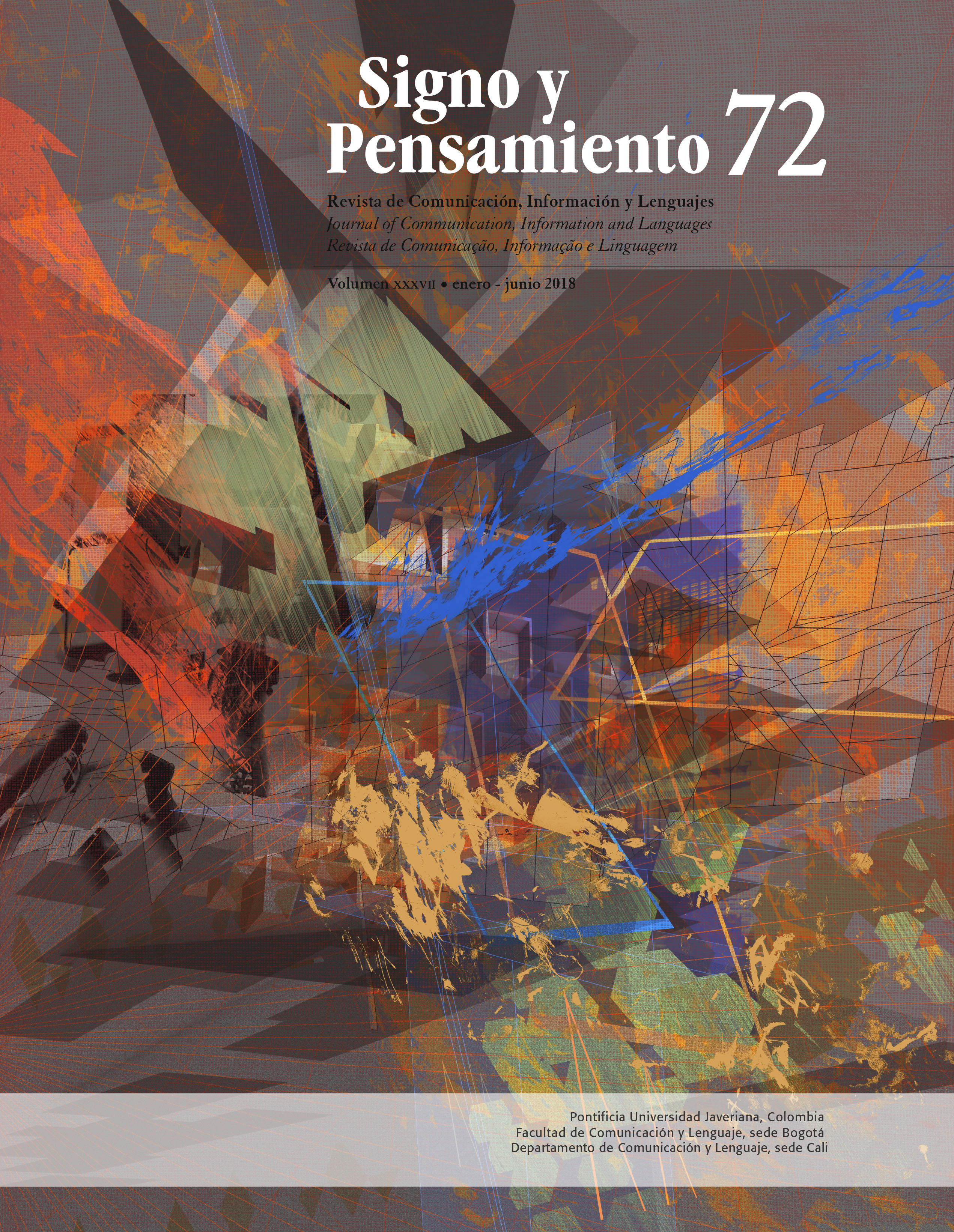Abstract
This article aims to provide a reflection on the way how the Intercultural Communicative Competence (ICC) has been understood in the processes of teaching a foreign language. To attain this goal, this text traces primarily what teaching a foreign language has been so far in the context of ELT [English Language Teaching]. This article then provides another reflection on what is implied when trying to bring the ICC into a foreign language teaching scenario. Finally, it provides an explanation on how to understand the ICC in the teaching of a foreign language through the lens of three concepts that are assumed in its definition: communication, language and culture.
Brown, H.D. (2001). Teaching by principles. An interactive approach to language pedagogy. New York USA: Longman.
Buttjes, D. & Byram, M. (1991). Mediating languages and cultures. Clevedon, Avon: Multilingual Matters.
Byram, M. (1989). Cultural studies in foreign language education. Clevedon UK: Multilingual Matters Ltd.
Byram, M. (2006). Languages and identities. Strasbourg: Council of Europe.
Byram, M. & Fleming, M. (1998). Language learning in intercultural perspective. Approaches through drama and ethnography. Cambridge: Cambridge University Press.
Kiesling, S., & Bratt, C. (Eds). (2005). Intercultural discourse and communication. The essential readings. Malden USA: Blackwell Publishing Ltd.
Ellis, R. (1985). Understanding second language acquisition. Oxford: Oxford University Press.
Fennes, H. & Hapgood, K. (1997). Intercultural learning in the classroom. Crossing borders. London UK: Cassel Council of Europe Series.
Holliday, A., Hyde, M., & Kullman, J. (2004). Intercultural communication. An advance resource book. London UK: Routledge Applied Linguistics.
Hymes, D. (1972). On communicative competence. En J.P. Holmes (Ed/Coord), Sociolinguistics (pp. 269-293). Harmondsworth: Penguin.
Kramsch, C. (1993). Language study as border study: experiencing difference. European Journal of Education, 18(3), 349-358. https://doi.org/10.2307/1503764
Kramsch, C. (1998). Language and Culture. Oxford: Oxford University Press.
Richards, J.C. (1986). Approaches and methods in language teaching. A description and analysis. Cambridge: Cambridge University Press.
Rico Troncoso, C. (2004). Reflexiones del quehacer evaluativo del ICFES en los últimos años: análisis y propuestas para mejorar el sistema educativo. En N. Apellido (Ed/Coord). ICFES, Evaluación por competencias: lenguaje e idioma extranjero (pp. 140-165). Bogotá: ICFES y Editorial Magisterio.
Rico Troncoso, C. (2005). Searching for coherence in language teaching: the issue of teaching competences. Colombian Applied Linguistics Journal, (7), 95-107. Recuperado de http://www.scielo.org.co/scielo.php?script=sci_arttext&pid=S0123-46412005000100007&lng=en&tlng=en.
Rico Troncoso, C. (2010). The effects of language material son the development of intercultural competence. En B. Tomlinson & H. Masuhara, Research for materials development in language learning (pp. 83-102). London: Continuum.
Risager, K. (1998). Language teaching and the process of European integration. En M. Byram & M. Fleming (Ed/Coord)., Language learning in intercultural perspective: approaches through drama and ethnography (pp. 242-254). Cambridge: Cambridge University Press.
Savicki, V. (2008). Developing intercultural competence and transformation. Theory, research and application in international education. Virginia, United States of America: Stylus Publishing.
Sercu, L., Bandura, E., Castro, P., Davcheva, L., Laskaridou, C. & Ryan, P. (2005). Foreign language teachers and intercultural competence: An international investigation. Clevedon UK: Multilingual Matters.
Stern, H. (1983). Fundamental Concepts of Language Teaching. Oxford: Oxford University Press
Tarasheva, E. & Davcheva, L. (2001). Up the hill of identity. En M. Byram, A. Nichols & D. Stevens (Eds/ Coords), Developing intercultural competence in practice (pp. 44-59). Clevedon UK: Multilingual Matters.
Thompson, N. (2003). Communication and language. Hampshire: Palgrave MacMillan.
This journal is registered under a Creative Commons Attribution 4.0 International Public License. Thus, this work may be reproduced, distributed, and publicly shared in digital format, as long as the names of the authors and Pontificia Universidad Javeriana are acknowledged. Others are allowed to quote, adapt, transform, auto-archive, republish, and create based on this material, for any purpose (even commercial ones), provided the authorship is duly acknowledged, a link to the original work is provided, and it is specified if changes have been made. Pontificia Universidad Javeriana does not hold the rights of published works and the authors are solely responsible for the contents of their works; they keep the moral, intellectual, privacy, and publicity rights.
Approving the intervention of the work (review, copy-editing, translation, layout) and the following outreach, are granted through an use license and not through an assignment of rights. This means the journal and Pontificia Universidad Javeriana cannot be held responsible for any ethical malpractice by the authors. As a consequence of the protection granted by the use license, the journal is not required to publish recantations or modify information already published, unless the errata stems from the editorial management process. Publishing contents in this journal does not generate royalties for contributors.



